| Voice/Instrument: | Mezzo soprano |
Biography
Montserrat Caballé (full name Montserrat Concepción Bibiana Caballé Folch, born 12 April 1933) is a Spanish Catalan operatic soprano. One of the greatest sopranos of the 20th century, she possesses a voice of remarkable beauty and of great range and flexibility, renowned for her flawless bel canto technique and unfailling musicianship. She is particularly admired for her interpretations of the works of Rossini, Bellini, Donizetti and Verdi.
Early life and career
Caballé was born in Barcelona and studied music at the Liceu Conservatory and singing technique under Napoleone Annovazzi, Eugenia Kemény and Conchita Badía. She graduated with the gold medal in 1954. Her first steps were rather modest, until she moved to Basel, Switzerland, where she made her professional debut in 1956, as Mimì in La bohème and became part of the Basel Opera [1] company between 1957 and 1959, covering a repertoire that included Mozart (Erste Dame in The Magic Flute) and Strauss (Salome), unusual for Spanish divas, and all sung in German, but which was very useful for her next professional step in the Bremen Opera (1959-1962). In 1962, Caballé returned to Barcelona and made her debut at the Liceu, singing the title-role in Richard Strauss' Arabella. From the Fall of 1962 through the Spring of 1963 she toured Mexico, notably portraying the title role in Jules Massenet's Manon at the Palacio de Bellas Artes. This was followed by several more successful appearances at the Liceu in 1963.
Success and fame
Caballé's international breakthrough came in 1965 when she substituted for an indisposed Marilyn Horne in a semi-staged performance of Donizetti's Lucrezia Borgia at New York's Carnegie Hall, which earned her a 25-minute standing ovation. While she had to learn the role in less than one month, and considering this was her first engagement in a bel canto score, her performance created a sensation and made her famous throughout the opera world. Later that year, Caballé made her debut at Glyndebourne singing her first Marschallin in Richard Strauss's Der Rosenkavalier and portraying the role of Countess Almaviva in Mozart's Le nozze di Figaro. In December 1965 she returned to Carnegie Hall for her second bel canto opera, singing the tremendous part of Queen Elizabeth I in Donizetti's recently rediscovered Roberto Devereux. Caballé closed out the year making her Metropolitan Opera debut on December 22, 1965; portraying Marguerite in Gounod's Faust opposite John Alexander in the title role and Justino Díaz as Méphistophélès. That performance also marked Sherrill Milnes's debut performance at the Met in the role of Valentin.
In 1966 Caballé made her first appearance with the Philadelphia Lyric Opera Company as Maddalena di Coigny in Andrea Chénierand her Italian debut at the Maggio Musicale Fiorentino in Trovatore (and Pirata in 1967). She returned to Philadelphia in 1967 to sing the title roles in Tosca and Madama Butterfly and to the Met to portray three different Verdi heroines: Leonora in Il Trovatore opposite Richard Tucker as Manrico, Desdemona in Otello opposite James McCracken in the title role, and Violetta in La Traviata with Tucker and George Shirley alternating as Alfredo.The latter role in particular garnered her further acclaim among American critics and audiences.[1] She returned to the Met again the following year to portray the title role in Verdi's Luisa Miller and in 1969 to sing the role of Liù in Giacomo Puccini's Turandot with Birgit Nilsson in the title role and James King as Calàf. She also returned to Philadelphia again to sing Imogene in Il Pirata (1968) and Lucrezia Borgia (1969).
In 1969 Caballé produced an astonishing performance as Elisabetta of Valois in an all-star cast (including Domingo and Cappuccilli) of Don Carlo at the Arena di Verona in a famous Jean Vilar production. Her high B (Si) on the final "ciel" at the very end of the opera became famous, lasting for more than 20 bars up to the final chord from the orchestra (a duration of approximately 14 seconds), driving mad an audience of more than 20,000. In these performances she had to act on crutches because of an accident earlier that year in New York City. In the same period she also appeared in one of the most remarkable recitals of her career at the Teatro Corallo, also in Verona.
In 1970, Caballé made her "official" debut at La Scala in Milan as Lucrezia Borgia, sang Leonora in Philadelphia, and returned to the Met as Amelia in a critically acclaimed profuction of Verdi's Un Ballo in Maschera with Plácido Domingo as Riccardo and Reri Grist as Oscar. In 1972 she made her first appearances at Covent Garden and the Lyric Opera of Chicago, both in the role of Violetta. That same year she returned to the Met as Elizabeth of Valois in Verdi's Don Carlo with Franco Corelli in the title role and sang Norma in Philadelphia. In 1973 she returned to Chicago to perform the title role in Donizetti's Maria Stuarda, sang Violetta in Philadelphia, and appeared at the Met as Bellini's Norma opposite Carlo Cossutta in his Met debut as Pollione and Fiorenza Cossotto as Adalgisa.
The year 1974 was probably when Caballé reached her peak, with a number of astonishing performances: Aida at Liceu in January, I Vespri Siciliani at the Met in March, Parisina d'Este at Carnegie Hall in March, three Normas in one week at the Bolshoi in Moscow, with Adriana Lecouvreur at La Scala in April, Norma in Orange in July (her top single performance, filmed in video by Pierre Jourdain), the recording of Aida under Muti in July, and the Duets recording with Giuseppe di Stefano in August.
In September 1974 she underwent major surgery to remove a huge but benign tumoral mass from her abdomen. She recovered quite well and was again on stage in early 1975.
In 1976 Caballé appeared at the Met once again as Norma, sang her first Aida in that house opposite Robert Nagy as Radamès and Marilyn Horne as Amneris, portrayed the title role in Strauss's Ariadne auf Naxos, and sang Mimì in Puccini's La Bohème opposite Luciano Pavarotti as Rodolfo.
In 1977 Caballé made her debut with the San Francisco Opera in the title role of Puccini's Turandot. She returned to that house ten more times over the next decade in such roles as Elvira in Verdi's Ernani and the title parts in La Gioconda, Semiramide, and Tosca among others.
Having lost some of her earlier brilliance and purity of voice, Caballé made up for it finding a more dramatic utterance and expressive singing in roles that demanded it. Thus, in 1978, another great year in her career, she sang a magnificent Tosca in San Francisco, with Pavarotti, in Madrid a sublime Norma, and a powerful Adriana Lecouvreur at the Met opposite José Carreras.
She continued to appear often at the Met during the 1980s singing in such roles as Tosca (1980, 1985) and Elizabeth of Valois (1985) and in special concerts in 1981 and 1983. Her 99th and final performance at the Met was on January 22, 1988 as Mimì with Pavarotti as Rodolfo, Barbara Daniels as Musetta, and Jonathan Summers as Marcello.
Achievements
Although best known for her bel canto roles, Caballé eventually sang over eighty operatic roles, from baroque opera to Verdi, Wagner, and Puccini, including the Marschallin in Richard Strauss's Der Rosenkavalier and the title role in Salome.
Caballé is also a noted recitalist, particularly of songs of her native Spain.
Her voice is noted for its purity, precise control, and power. She is admired less for her dramatic instincts and acting skills than for her superb technique, vocal shadings, and exquisite pianissimos, which were inspired by Miguel Fleta.
The later years
Caballé's duet album with Freddie Mercury, Barcelona.Uniquely, Caballé recorded both the title role in Bellini's opera Norma (for RCA in 1972, opposite Plácido Domingo as Pollione) and later the role of Adalgisa (to Joan Sutherland's Norma) in the 1984 Decca recording conducted by Richard Bonynge. Although the role of Adalgisa was originally conceived by Bellini for a soprano, it is usually now sung by a mezzo-soprano. Caballé is the only soprano to have recorded the role, making her one of the most youthful-sounding Adalgisas on disc, despite the fact that she was over 50 at the time.
One of her rare excursions into the world of pop music, Caballé's duet with rock singer Freddie Mercury of Queen, "Barcelona", became a hit single in 1988, accompanied by an album of the same name. The title track later became the anthem of the 1992 Summer Olympics which was hosted by Caballé's native city, and appeared again in the pop music charts throughout Europe. Caballé also performed the song live, accompanied by a recording of the by then deceased Mercury, before the 1999 UEFA Champions League football final in Barcelona's Camp Nou stadium.
Caballé has dedicated herself to various charities. She is a UNESCO Goodwill Ambassador and has established a foundation for needy children in Barcelona.
In 2003 she starred in her own 98-minute documentary film "Caballé Beyond Music" for theatrical, DVD & TV release worldwide, which featured Plácido Domingo, Luciano Pavarotti, José Carreras, Renée Fleming, Freddie Mercury, Maria Callas, Samuel Ramey, Marilyn Horne, Zubin Mehta, Mstislav Rostropovich, Giuseppe di Stefano, Maya Plisetskaya, Yelena Obraztsova, Cheryl Studer, Montserrat Martí, Joan Sutherland, Claudio Abbado, Federico Mayor Zaragoza (UNESCO), Luc Montagnier (discoverer of the HIV virus - Pasteur Institute), Eve Queler, Terenci Moix, etc. Shot in 23 cities for three years: Barcelona, New York, Paris, London, St. Petersburg, Rome, Nice, Milan, Munich, Vienna, Salzburg, Cologne, Basel, Seville, Cordoba, Madrid, Peralada, Ostia Antica, Andorra, Ripoll and the Abbey of Montserrat. It was presented at 14 international film festivals.
Caballé does not appear to have altogether retired from the stage. She continues to assume new roles: in 2002, Catherine of Aragon in Saint-Saëns's Henri VIII; in 2004, the title role in Massenet's Cléopâtre, both at the Liceu. At the age of 74 (2007), she still maintains a busy schedule of recitals and concerts, mainly in Germany. She has appeared as The Duchess of Crakentorp in La fille du régiment at the Vienna State Opera in April 2007.
On July 2, 2008 Caballé was awarded a Honoris Causa doctorate by the Universidad Internacional Menéndez Pelayo in Santander.
Caballé married the tenor Bernabé Martí in 1964. Her daughter, Montserrat Martí (Montsita), is also a soprano. The two occasionally perform together.
Discography
Composers' compositions
Donizetti, Gaetano
Caballe - The Original Jacket Collection - CD9: Donizetti RartiesVocal and instrumental music
Gioacchino Rossini
Caballe - The Original Jacket Collection - CD6: Rossini RaritiesVocal and instrumental music
Giuseppe Verdi
Caballe - The Original Jacket Collection - CD5: Verdi RaritiesVocal and instrumental music
Richard Strauss
Caballe - The Original Jacket Collection - CD4: A Richard Strauss Song RecitalVocal and instrumental music
Enrique Granados
Caballe - The Original Jacket Collection - CD3: Montserrat Caballe Sings Songs Of Enrique GranadosVocal and instrumental music





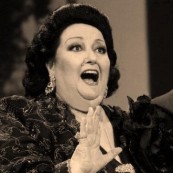
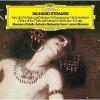
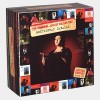
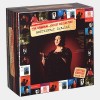
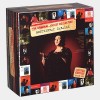
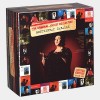
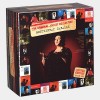
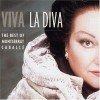
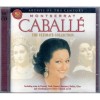
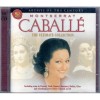
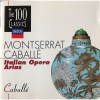
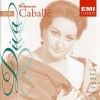
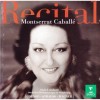
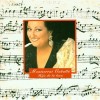
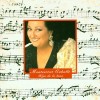
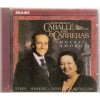
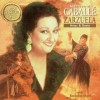
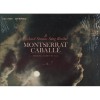
![Verdi - The Great Operas - 01 - La Traviata (2CD) [Pretre, 1967]](http://static.classicalm.com/repository/composition-cover/small/44158-img1665696782691038.jpg)

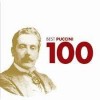
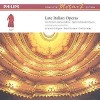
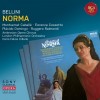
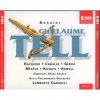
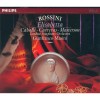
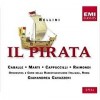
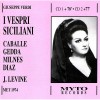
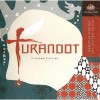
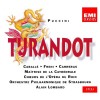
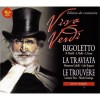
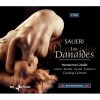
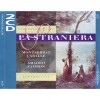
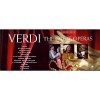

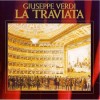
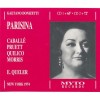
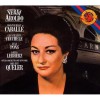
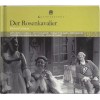
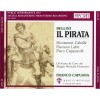

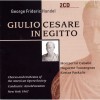
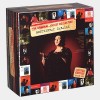
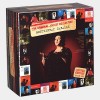
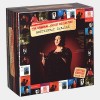
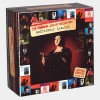
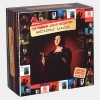
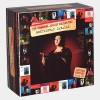
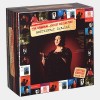
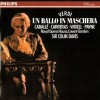
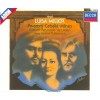
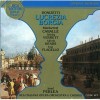
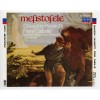
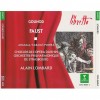
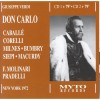
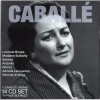
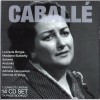
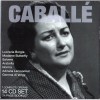
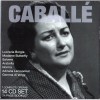
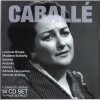
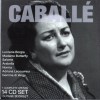
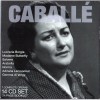
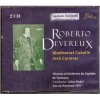
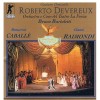
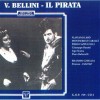
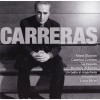
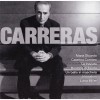
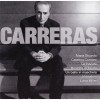
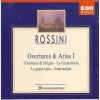
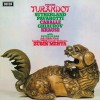
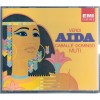
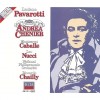
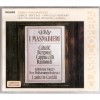
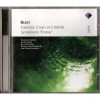
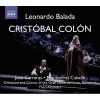
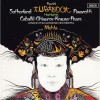
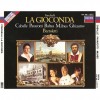
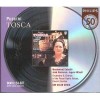
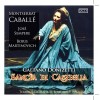
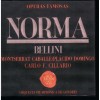
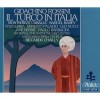
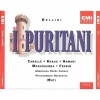
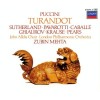
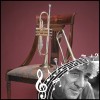
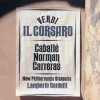
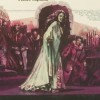
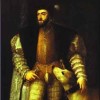

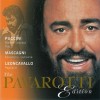
![The Opera Album 2011. [CD 2 of 2]](http://static.classicalm.com/repository/collection-cover/small/1345-img1369921777459572.jpg)